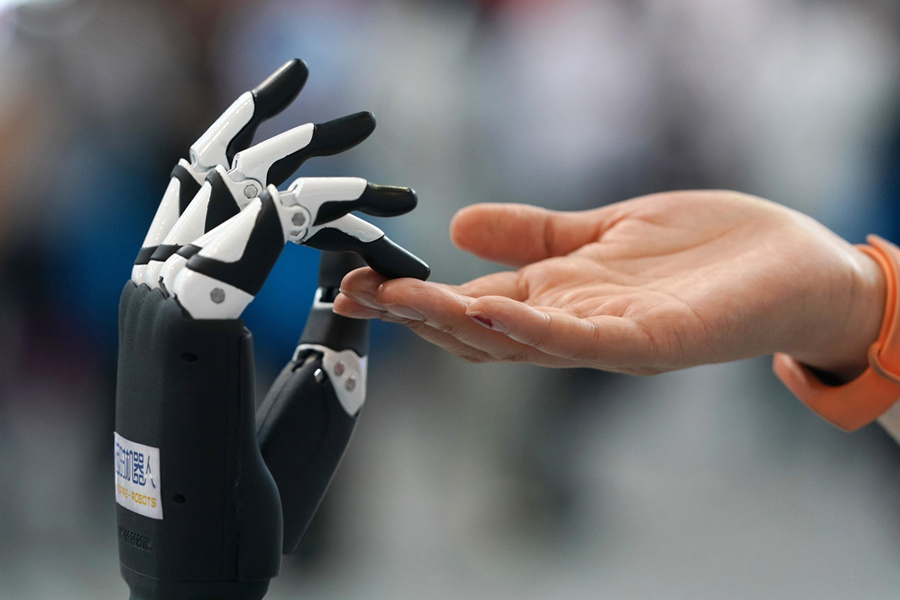Beijing accelerates development as national innovation center

A journalist views a robot during a visit to the Innovation Achievement Exhibition in Zhongguancun National Innovative Demonstration Zone in Beijing, Sept. 26, 2019. (Xinhua/Liu Chan)
In 2019, Beijing's R&D spending intensity reached around 6 percent of GDP, and applications for invention patents increased by 13.1 percent. The contractural value of technology transactions totaled nearly 570 billion yuan (around 82.4 billion U.S. dollars).
BEIJING, Jan. 12 (Xinhua) -- Beijing made significant progress in 2019 in building the city into a national innovation center.
According to the government work report delivered Sunday at the third Session of the 15th Beijing Municipal People's Congress, the city issued 30 policy measures last year to advance institutional reform in R&D management and improve the innovation ecosystem.
Last year, the city's R&D spending intensity reached around 6 percent of GDP, and applications for invention patents increased by 13.1 percent. The contractural value of technology transactions totaled nearly 570 billion yuan (around 82.4 billion U.S. dollars).
The report added that significant progress was also made in nurturing the city's "three science cities and one hi-tech area," namely the Zhongguancun Science City, the Huairou Science City, Beijing Future Science Park and the Beijing Economic-Technological Development Area.

An exhibitor demonstrates a robot in an exhibition held during the national mass entrepreneurship and innovation week in the Zhongguancun National Innovation Demonstration Zone in Beijing, June 13, 2019. (Xinhua/Jun Huanzong)
In Zhongguancun National Innovation Demonstration Zone, 22 hard and core technology incubators were set up last year to breed more technology companies, and over 100 new technologies and products were released.
In addition, in the demonstration zone, business investment in R&D grew by around 16 percent last year. Businesses in the zone registered total revenue of 6.5 trillion yuan, up above 10 percent from 2018.
The zone now hosts 82 unicorns, ranking first in China.


![[Story in Beijing] Ke Makai: an "authentic Beijinger" from the UK_fororder_老外在北京1_副本](https://p2.cri.cn/M00/A0/4D/CqgNOl38X-6ABD3dAAAAAAAAAAA883.570x320.png)
![[Story in Beijing] Jong Mei: new things happening in Beijing everyday_fororder_中美_副本](https://p2.cri.cn/M00/96/FD/CqgNOl3l29GAaNhgAAAAAAAAAAA966.570x320.png)